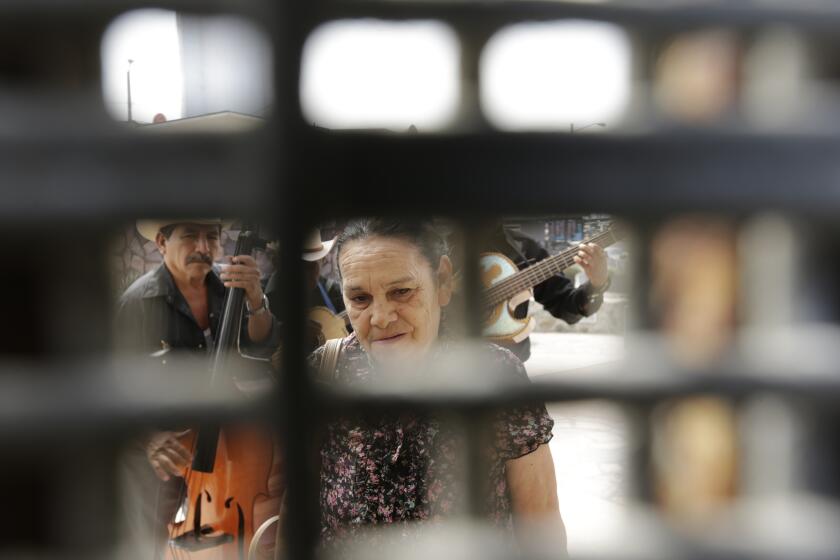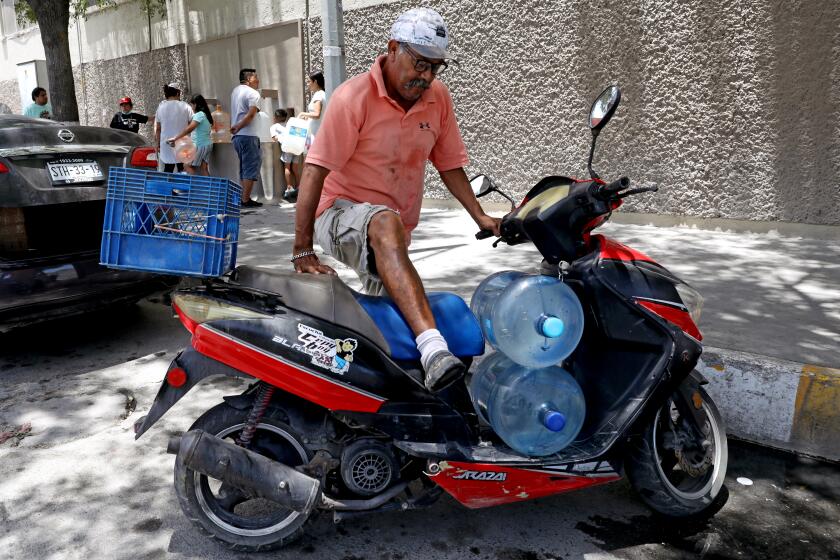Administrators of popular Facebook page Tijuana 664 gunned down outside their home
TIJUANA — Two administrators of the anonymous Facebook “news and media” page Tijuana 664 were gunned down Saturday night in front of their home, according to local law enforcement authorities.
Both men were killed on the 1 de Mayo street in the Cañón El Rubí neighborhood, where they were roommates with other people. Police identified the victims by their first names only: Sergio, who was 40, and Mario, 43.
Anonymous Facebook pages in Tijuana often purport to be offering news, but the content can run the gamut from memes to copy-and-pasted stories from mainstream news organizations to insider crime blogs that offer explicit details about violence in the border city. Many local journalists have publicly spoken out about how the existence of these anonymous pages puts their safety at risk both by encouraging violence and by creating confusion among the public about the role of journalists.
“These kinds of pages, and the people behind them, are putting us at risk,” Sonia de Anda, a longtime Tijuana journalist who runs the news site Esquina 32, has said repeatedly. During her Monday morning newscast, she made the distinction between what the operators of anonymous Facebook pages do and the work of journalists, who go through a process to verify the information they publish and who include their real names with their reports, she explained.
Friendship Park on the U.S.-Mexico border has been a unique place for reunions for decades. But the Biden administration might shut it down forever.
The lines aren’t always perfectly clear, according to people who run the pages, human rights groups and civil organizations, who have pushed Facebook to continue allowing for anonymity. Some bloggers who run anonymous narco-news sites argue the only safe way to report on rivaling drug cartels is to remain anonymous.
Investigators said Monday they are looking into the possibility that the men were killed because of some information they shared with the public on their page, which is named after the telephone area code for Tijuana. Users suggested in comments that many of the page’s postings about drug trafficking had been deleted immediately after the murders.
A Facebook post after the men’s deaths identifies both of them as the founders of the site, which has more than 17,000 followers.
“... Regarding this page, it was created by the two of them and due to what happened today, there are few of us left in the team, our intention was never to offend or make fun of anyone,” the post reads, “however the publications were decided by the founding administrators, now this page will change course to offer what it was originally made for, news and good and important things from Tijuana, we apologize if anyone felt offended by previous posts.”
A request for further comment sent to the messages section of the page was not immediately returned.
Facebook posts on other anonymous pages in Tijuana can sometimes include messages to rival gangs and operate much like a digital “narco-manta,” or a banner left at crime scenes meant to take credit for a crime and to intimidate and threaten others in the area. On the lighter side of the business, some anonymous pages take money to promote specific events in the area.
Monterrey is the financial capital of northern Mexico — and it currently finds itself in a historic drought. Sound familiar?
Anonymous Facebook pages may have played a role in the Jan. 17 killing of veteran Tijuana photojournalist Margarito Martínez, who was gunned down in front of his home.
Beforehand, a local blogger falsely accused him of running two anonymous Facebook pages — Tijuana en Guerra and Quemando Malandros — which was akin to accusing him of possibly being in cahoots with some of the city’s most dangerous criminal groups. Martínez feared for his life after the accusation was made.
Prosecutors say the motive for the slaying of Martínez was probably retaliation for the publication in another news outlet of personal details and other information about the network of a violent criminal group that controlled the neighborhood where Martínez lived, according to text messages and evidence revealed in court.
In February, the son of a Mexican journalist was fatally shot outside his family home in Tijuana. The victim, Marcos Ernesto Islas Flores, managed a Facebook page titled Zona Norte Noticias, which shared news releases and articles. The state attorney general’s office said staff interviewed family members, who stated Islas Flores had not been recently working in the field of journalism and communications, but they have not said whether his death was related to his posts on the Facebook page.
More to Read
Sign up for Essential California
The most important California stories and recommendations in your inbox every morning.
You may occasionally receive promotional content from the Los Angeles Times.












